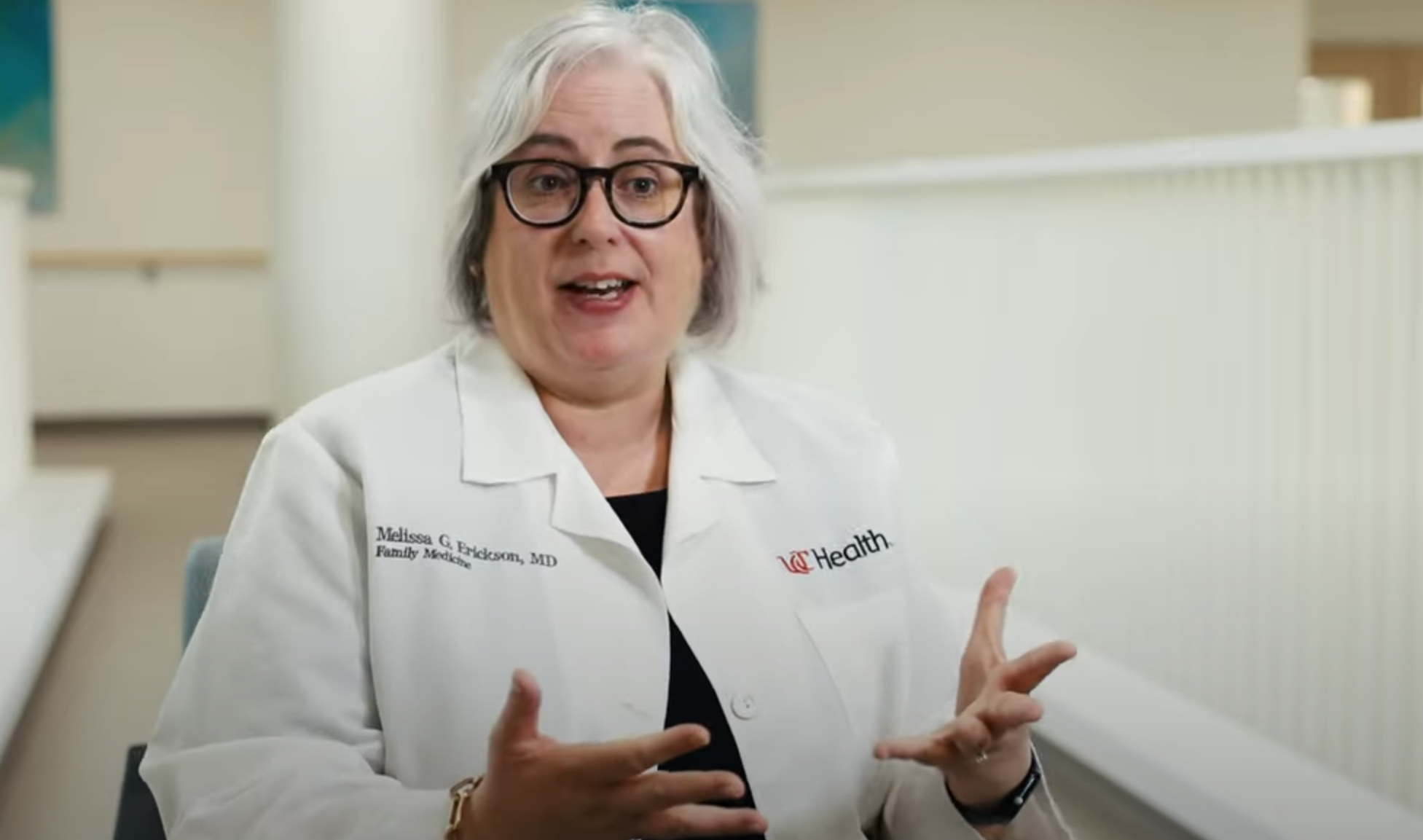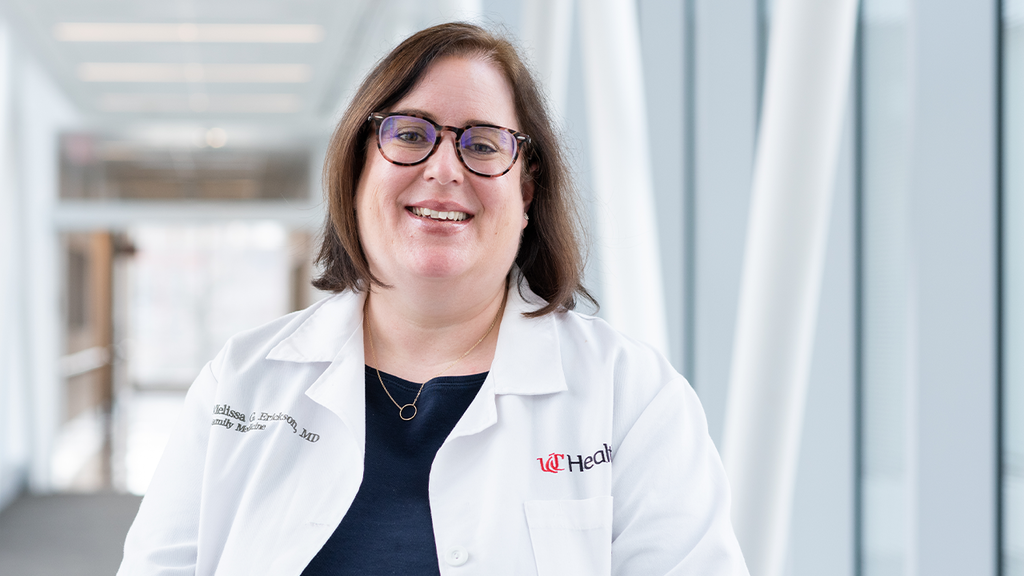Whether someone is newly diagnosed or years into survivorship, cancer can bring lasting physical and emotional effects—ones that require long-term, whole-person care.
That’s why the University of Cincinnati Cancer Center—already home to the region’s largest program dedicated to supportive services—is launching one of the first physician training programs in the nation to address both survivorship and oncology-focused primary care in adults.
The Cancer Survivorship and Oncology Primary Care Fellowship is a one-year program designed to train primary care physicians to care for cancer patients across the continuum—from active treatment through long-term survivorship. It equips them with the tools, expertise and compassion to manage the unique health challenges that come with cancer and its treatments.
Filling a National Gap in Care
More than 18 million cancer survivors are living in the United States today—and that number is expected to surpass 22 million by 2030. As survivorship grows, so does the need for long-term, high-quality care that supports the full picture of health.
Yet, most medical schools and primary care residencies still don’t teach physicians how to care for cancer survivors—or for patients navigating the physical and emotional side effects of treatment. Issues like fatigue, neuropathy, fertility, heart health, or depression may be overlooked, simply because doctors weren’t trained to look for them.
“Cancer patients often rely on their primary care provider during and after treatment—but many providers don’t feel confident managing the side effects, late effects, or complex needs that come with a cancer diagnosis,” said Dr. Melissa Erickson, medical director of University of Cincinnati Cancer Center’s Survivorship and Oncology Primary Care program.
“We created this program because there wasn’t formal training in this space. Too often, patients were falling through the cracks. Now we’re helping change that.”
From hormone shifts and mental health challenges to long-term risks for secondary cancers, cancer’s impact doesn’t end when treatment does. Without specialized support, patients can feel overwhelmed and uncertain about where to turn.
This program helps close that gap—preparing physicians to deliver expert, whole-person care from diagnosis through survivorship.
What Makes This Fellowship Different?
Physicians will train alongside specialists in cardio-oncology, psychiatry, nephrology and integrative medicine—gaining a full view of cancer’s impact on the body and mind. They’ll also work directly with patients through Oncology Primary Care visits and supportive service programs, including stress relief, exercise programs, mental health support and more.
“Our goal is to create a national model,” said Dr. Erickson. “We’re partnering with other top cancer centers to help define what high-quality survivorship care looks like—so that more patients across the country can benefit.”
Redefining Cancer Care with Whole-Person Healing
This isn’t just a training program—it’s a step toward redefining how cancer care is delivered.
The University of Cincinnati Cancer Center has long championed a whole-person approach. Its Survivorship and Supportive Services program is the most comprehensive in the region, offering care that looks beyond labs and scans to address everything that affects a patient’s quality of life.
“We’re incredibly grateful for the life-saving power of modern cancer treatments,” said Dr. Erickson. “But we also know those treatments can have lasting effects. Survivorship care means thinking about what comes next—managing chronic conditions, preventing future disease, and supporting mental and physical health.”
By launching this fellowship, the University of Cincinnati Cancer Center is investing in a new generation of providers who are not only cancer-informed—but person-centered.
What This Means for Patients—During and After Treatment
For patients and survivors, this program means more access to doctors who understand cancer from every angle—not just as a diagnosis, but as a long-term journey. It means:
- During treatment: Having a provider who knows how to manage side effects, monitor for complications, and coordinate care with oncologists.
- After treatment: Working with a doctor who understands the long-term impact of cancer therapies—and how to support your physical and emotional recovery.
- At every stage: Receiving care that looks at the whole picture, including fatigue, sexual health, fertility, nutrition, mental wellness and more.
- Always: Feeling seen, heard, and supported by a team trained to meet your needs—wherever you are in your cancer journey.
This program ensures that every patient—whether in treatment or survivorship—gets care that goes beyond the cancer itself. It’s care that supports healing, restores wellness, and puts quality of life at the center of every decision.

